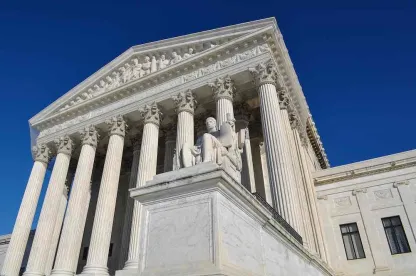Recently, the Supreme Court of the United States tossed the convictions of two defendants found guilty of public corruption charges during former New York Gov. Andrew Cuomo’s term. The opinions, Ciminelli v. United States and Percoco v. United States, continue the Court’s recent trend of narrowing the government’s ability to prosecute defendants under outlier theories of liability for white collar crimes. In Part 1 of this series, we reviewed Ciminelli; this Part 2 will outline Percoco and explore the implications the two opinions may have for the future landscape of white-collar enforcement.
Percoco v. United States –Honest Services & Questionable Jury Instructions
In Percoco, the Supreme Court was presented with the question of whether a private citizen can commit “honest services” wire fraud based on their own duty of honest services to the public. The Court answered in the negative, reversing defendant Joseph Percoco’s conviction on the basis of erroneous jury instructions at trial.
Percoco served as the executive deputy secretary to then-Gov. Cuomo from 2011 to 2016 – with one eight-month hiatus in 2014, when he resigned from government service to manage Cuomo’s re-election campaign. During that hiatus, Percoco accepted $35,000 to assist a real estate development company in its dealings with Empire State Development, a state agency. Specifically, Percoco successfully persuaded Empire State Development to drop a requirement that the real estate company enter into an agreement with local unions in order to receive funding for the state project.
Percoco was indicted and charged with conspiracy to commit “honest services” wire fraud in relation to the labor union requirement. At trial, and over Percoco’s objection, the trial court instructed the jury that Percoco could have a duty to provide honest services to the public while not serving as a public official if two conditions were met: first, if he “dominated and controlled any governmental business,” and second, if “people working in the government actually relied on him because of a special relationship he had with the government.” The jury convicted Percoco, and he appealed, arguing that a private citizen could not commit “honest services” fraud based on his own duty to the public. The Second Circuit affirmed his conviction.
A unanimous Supreme Court reversed, finding that the legal standard expressed in the jury instructions was erroneous. Justice Samuel Alito, writing for the Court, noted that the Second Circuit’s decision affirming Percoco’s conviction, as well as the jury instructions, were based on a 1982 Second Circuit case that is no longer viable after a swath of Supreme Court decisions in the following years.
While the Court reversed the conviction, it refused to wholeheartedly embrace Percoco’s argument, finding that, under traditional principles of agency, a private person could have a duty of honest services to the public. However, the Court emphasized its concern that the jury instructions, which “impl[ied] that the public has a right to a private person’s honest services whenever that private person’s clout exceeds some ill-defined threshold,” were “too vague.” The jury instructions did not define “the intangible right of honest services” sufficiently enough for an ordinary person to understand what conduct was prohibited or in a manner that discouraged arbitrary and discriminatory enforcement.
The Point: Narrowed Prosecutions, Increased “Vagueness” Defenses
With these decisions, the Supreme Court continues its efforts to narrow the scope of certain federal anti-corruption and white-collar crime laws. The justices warned prosecutors from relying upon vague indictments, from broadening the definition of “property” past its traditional meaning, and from becoming embroiled in what they view as politics as usual. As a result, the decisions may drive prosecutors to rely on other laws in future cases. On the other hand, the Court has given more leverage to defense counsel in pre-indictment negotiations with federal prosecutors, as perceived increased litigation risk by the government may encourage pre-indictment resolutions. Parties can also expect an increased reliance on vagueness defenses by defense counsel, particularly in cases involving intangible property interests and novel theories of liability.




 />i
/>i

